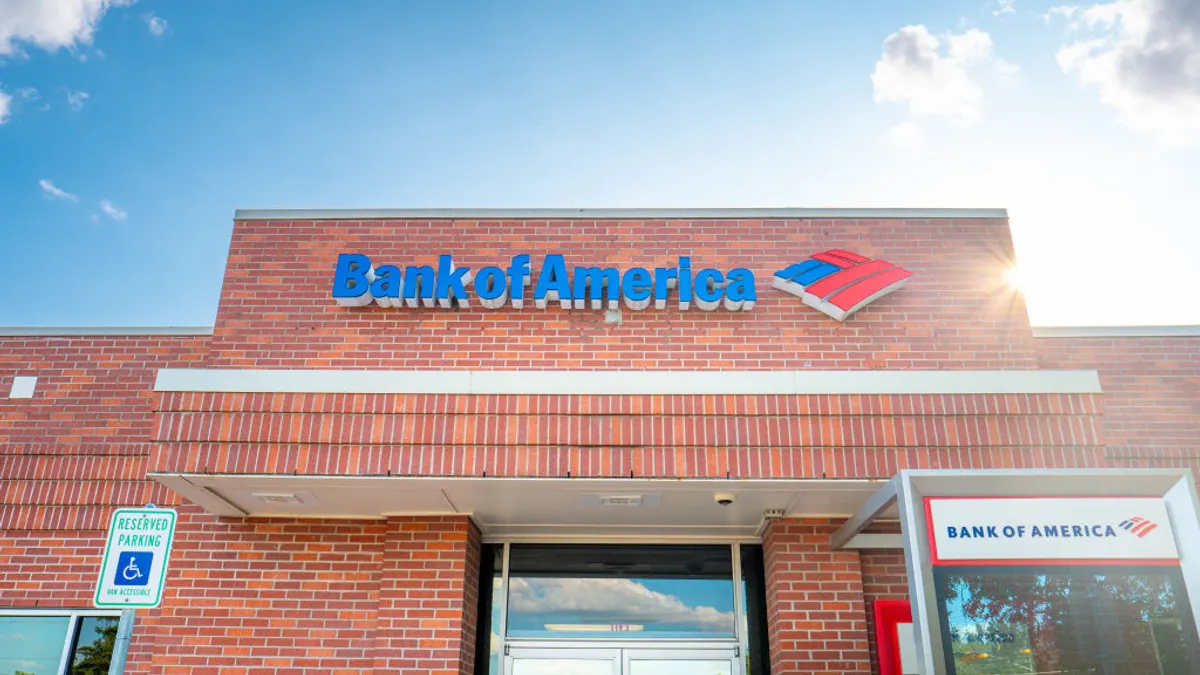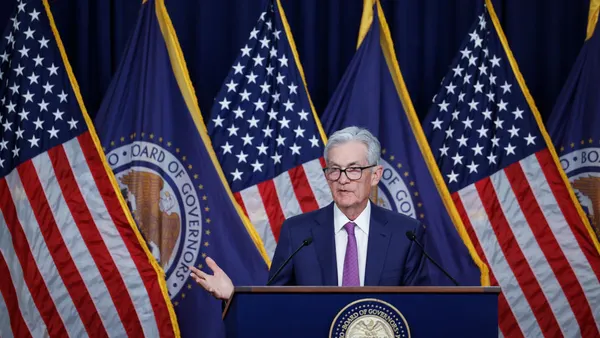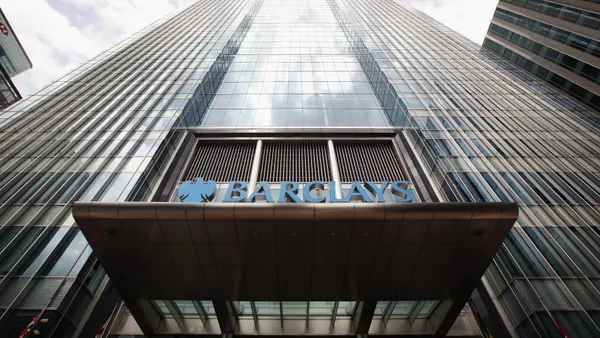Dive Brief:
- Wells Fargo on Wednesday revealed in a Securities and Exchange Commission (SEC) filing that the Consumer Financial Protection Bureau (CFPB) is investigating "certain of the Company's past disclosures to customers regarding the minimum qualifying debit card usage required for customers to receive a waiver of monthly service fees on certain consumer deposit accounts."
- The bank also disclosed that the bureau is probing "whether customers were unduly harmed by the Company’s historical practices associated with the freezing (and, in many cases, closing) of consumer deposit accounts after the Company detected suspected fraudulent activity (by third parties or account holders) that affected those accounts."
- The filing came a day after U.S. Bank disclosed that the CFPB is investigating "certain of the Company’s consumer sales practices."
Dive Insight:
U.S. Bank’s filing indicated only that the lender is "cooperating fully with all pending examinations, inquiries and investigations," and "has responded and continues to respond to the CFPB." When pressed for more information, a U.S. Bank spokesperson told American Banker on Thursday the company couldn’t comment further because the supervisory work is confidential.
"Due to their complex nature, regulatory exams, inquiries and investigations often take some time before they are resolved," a bank spokesperson said in an emailed statement to the publication.
Wells Fargo’s disclosures, however, surround practices that have been well-documented since at least 2019.
The bank said in a May 2019 filing that it was "reviewing certain past disclosures to customers regarding minimum qualifying debit card usage required to waive monthly service fees on certain consumer deposit accounts."
At issue was a $10 monthly fee attached to the bank’s Everyday Checking and Opportunity Checking accounts. Customers could avoid the charge upon meeting several conditions, including making 10 transactions a month. However, Rep. Katie Porter, D-CA, asserted later that year, the bank failed to explain that ATM withdrawals did not count toward that threshold.
Porter urged Wells Fargo CEO Charlie Scharf in a November 2019 letter to push the bank to repay customers "hundreds of millions of dollars" in service fees it "deceptively collected" from 2013 to 2018.
Scharf responded less than two weeks later that the bank would begin issuing refunds in 2020 to some customers affected by a policy the bank acknowledged in its earlier SEC filing had raised "the possibility of confusion."
Jim Seitz, a Wells Fargo spokesman, reiterated that stance Thursday in an email to Bloomberg.
"As previously reported, we conducted a review of the fee waiver based on debit-card usage, and we are issuing refunds to customers who may have found previous disclosures unclear," he told the wire service. "Wells Fargo has simplified the options for our customers to avoid the monthly service fee on their checking account, and we no longer offer an option to waive the monthly service fee based on debit-card usage."
The bank, in this week’s SEC filing, also nudged up — to $2.6 billion, from $2.4 billion — its estimated ceiling for losses beyond what it has planned in connection to legal action.
Wells Fargo’s disclosure this week relating to "historical practices associated with the freezing (and, in many cases, closing) of consumer deposit accounts" in suspected fraud cases may date back as far as 2017. The bank disclosed a CFPB investigation in August of that year.
Scharf, since taking the top job at Wells, has held that getting on the right side of regulators is a top priority. The bank faced 12 enforcement actions when he took the helm in October 2019, and the bank has winnowed that to 10.
"Our priorities today are clear: Address all regulatory and control issues in the company and serve our customers every day with the highest operational and ethical standards to enable them to succeed financially," Scharf wrote to Porter in December 2019. "We feel a great sense of urgency to deliver on these priorities and we will allocate the necessary resources to do so."
The question, however, remains why the bank is making disclosures now on issues that may be taken as common knowledge.
The actions could stem from an expectation that the CFPB, once Biden administration nominee Rohit Chopra assumes control, could take a stiffer stance on penalties and the disclosures serve as a warning to shareholders.
The bureau collected less than $3 billion in consumer relief between 2016 and 2020 — when Republicans were in charge — compared with $10 billion in 2014 and 2015, near the end of the Obama administration, American Banker reported Thursday. And although the CFPB brought 48 enforcement actions last year, the dollar amounts remained relatively small.
Advocates such as the National Consumer Law Center (NCLC) are predicting larger penalties from the bureau in the coming years of Democratic control.
"It’s … maybe somewhat our expectation that the CFPB would not continue [former Director Kathy] Kraninger’s pattern of going after small fish," Chi Chi Wu, a staff attorney at the NCLC, told American Banker.














